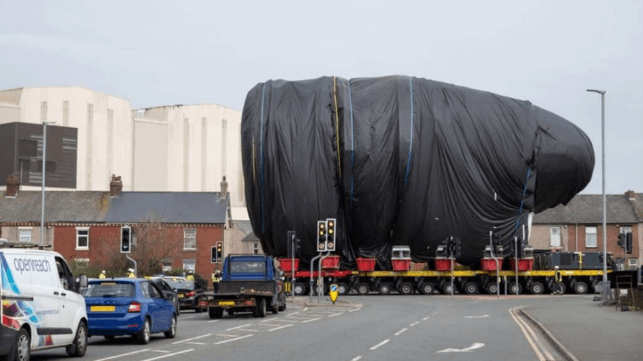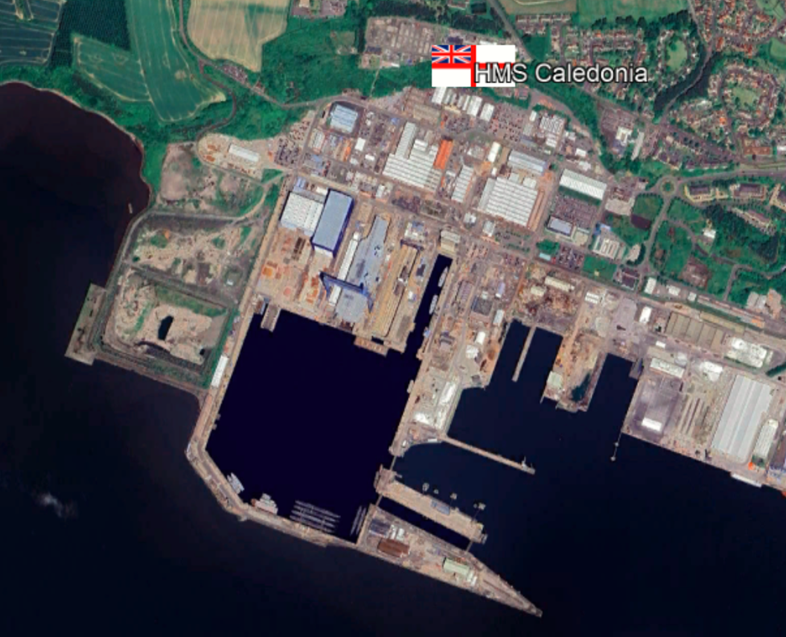UK Planning to Open an Additional Submarine Dockyard

In response to a parliamentary written question, the British Ministry of Defence has confirmed that as part of a $460m upgrade to Rosyth Dockyard on the East coast of Scotland, a docking facility is to be created able to receive Dreadnought Class nuclear ballistic missile submarines.
The requirement has arisen because once launched from Barrow, scheduled not before 2028, first-in-class HMS Dreadnought will be too large to get back into Barrow after its fit-out and during sea trials. The lack of sufficient space is likely to get worse, as submarine production at Barrow is accelerated to deliver a submarine every 18 months as part of the AUKUS program. Nor will there be capacity for the boat in the Faslane Naval Base on the Clyde.

Rosyth Dockyard, with HMS Queen Elizabeth (R08) under maintenance in 2024 (Google Earth/Airbus/CJRC)
Although it still retains a Royal Navy presence in the form of the shore station HMS Caledonia, the Rosyth Dockyard was privatized in 1993 and bought by Babcock International. The dockyard currently has a role is breaking up decommissioned nuclear submarines, the Royal Navy’s two aircraft carriers were completed at Rosyth, and Type 31 frigates are built in the yard. A submarine maintenance facility was built at the yard in the late 1980s, but was never brought into use before the work was transferred to Devonport. Hence it is likely that the new facility can take advantage of some existing infrastructure.
With a period approaching when the UK’s nuclear attack submarine fleet is to nearly double in size, with the nuclear ballistic Vanguard Class coming out of service and the Dreadnoughts coming into service, the Ministry of Defence may have concluded that having only two active submarine dockyards, at Faslane and Devonport, presents too much concentration of risk and insufficient contingency capacity. The scope and role of the new facility, and who is going to pay for it, is likely to be the subject of ongoing discussions between Babcock and the UK government.
